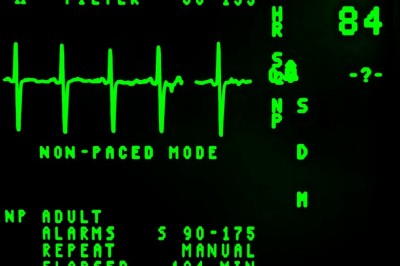Heart Murmur – Symptoms, Causes and Treatment
A heart murmur is a whooshing sound between the beats that a doctor hears through a stethoscope. The whoosh is just an extra noise that the blood makes as it flows through the heart. Doctors usually discover murmurs during regular checkups or when kids see the doctor because theyre sick. Normal heart sounds are called S1 and S2. They are the "lubb-dupp" sounds that are thought of as the heartbeat. These sounds are produced when the heart valves close. Because the heart is also divided into a "right side" and a "left side," sometimes these sounds may be somewhat divided -- most commonly noted is a "split S2," caused when the right and left ventricles relax, and valves close at very slightly different times. Healthy children with innocent murmurs do not need treatment because they have a normal heart. If your child has an innocent murmur, alert your pediatrician during regular checkups. Pregnant women with innocent murmurs due to increased blood volume also do not need treatment. If you have an innocent murmur due to an illness or condition such as anemia, hyperthyroidism, or fever, the murmur will go away once the illness or condition is treated. Causes The most common cause of abnormal heart murmurs is congenital heart disease. Congenital heart disease occurs when the heart, heart valves, or blood vessels attached to the heart do not develop normally before a baby is born. Some babies are born with a combination of heart defects. Most heart murmurs are innocent: They are caused by blood flowing through healthy valves in a healthy heart, and do not require treatment. However, heart murmurs can be caused by blood flowing through a damaged or overworked heart valve. Heart-valve defects may be present at birth or heart-valve disease may result from other illnesses, such as rheumatic fever, heart disease, heart attacks, or infective endocarditis. Symptoms Most people with heart murmurs do not have any other signs and symptoms of a heart problem. The murmur is usually innocent (harmless). Some children have what is known as an innocent murmur. These murmurs are not related to congenital heart defects, and usually resolve by the time a child reaches adulthood. If your childs physician hears an innocent murmur, he/she may want to perform additional tests to ensure a heart defect is not present. A child with an innocent murmur can live a normal life and be as active as any other healthy child. Treatment Treatment for heart murmur depends on the cause. Many children and adults have innocent heart murmurs, which do not indicate disease and require no treatment. Sometimes, mitral valve prolapse requires no treatment, just periodic checkups by your doctor. When other conditions, such as high blood pressure, cause heart murmurs, your doctor will treat the underlying cause. Some types of valve disease may require medication or surgery. Doctors used to recommend that most people with abnormal heart murmurs take antibiotics before visiting the dentist or having surgery. Thats usually not the case anymore. Guidelines released in 2007 reserve preventive antibiotic treatment only for a small group of people who are at high risk of serious complications. Most people with heart murmurs wont need antibiotics. If you have questions about whether or not you should take antibiotics, talk to your doctor. Read about home remedies, natural remedies, home remedy .Read about health guide beauty tips and girls forum discussion




























